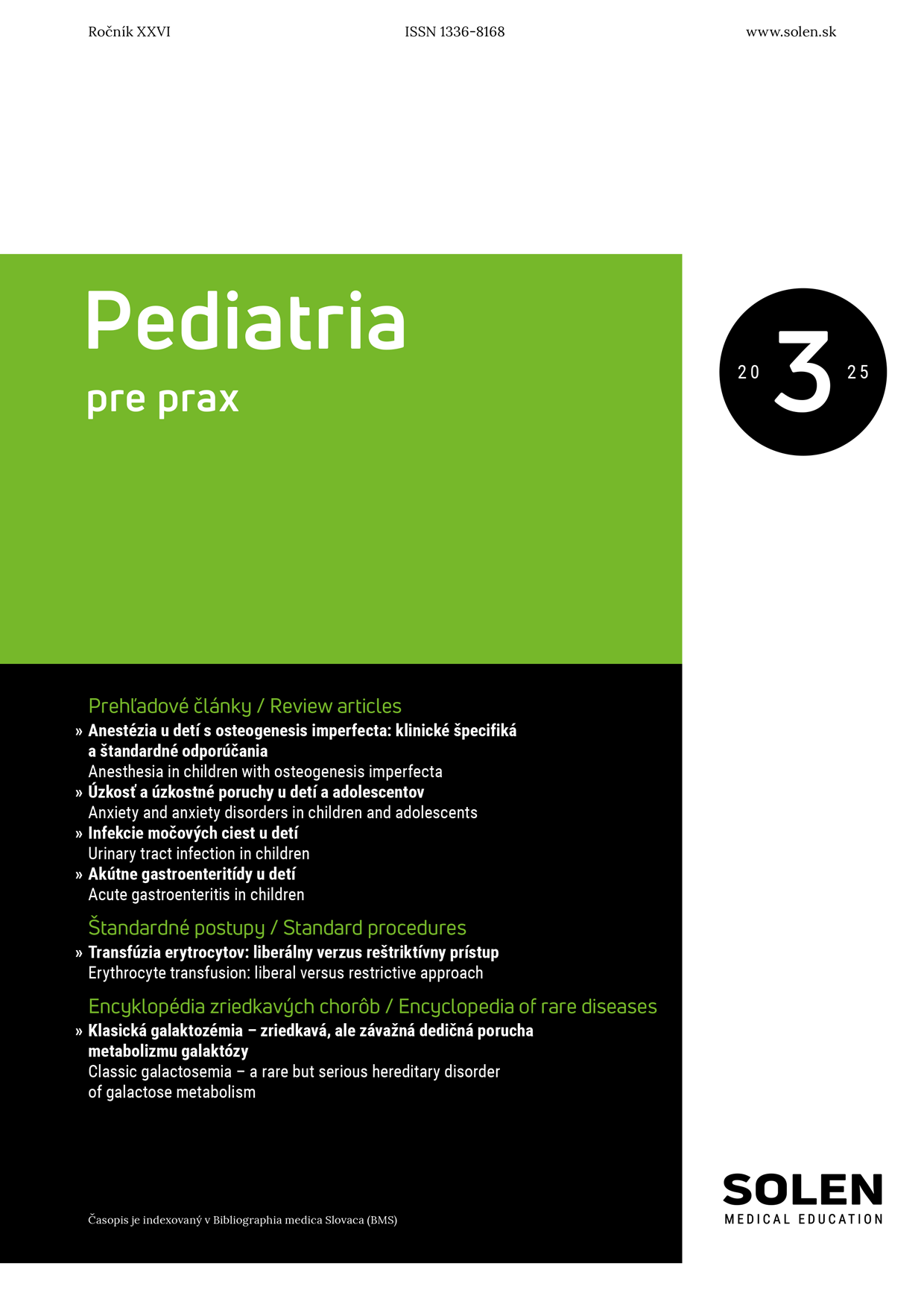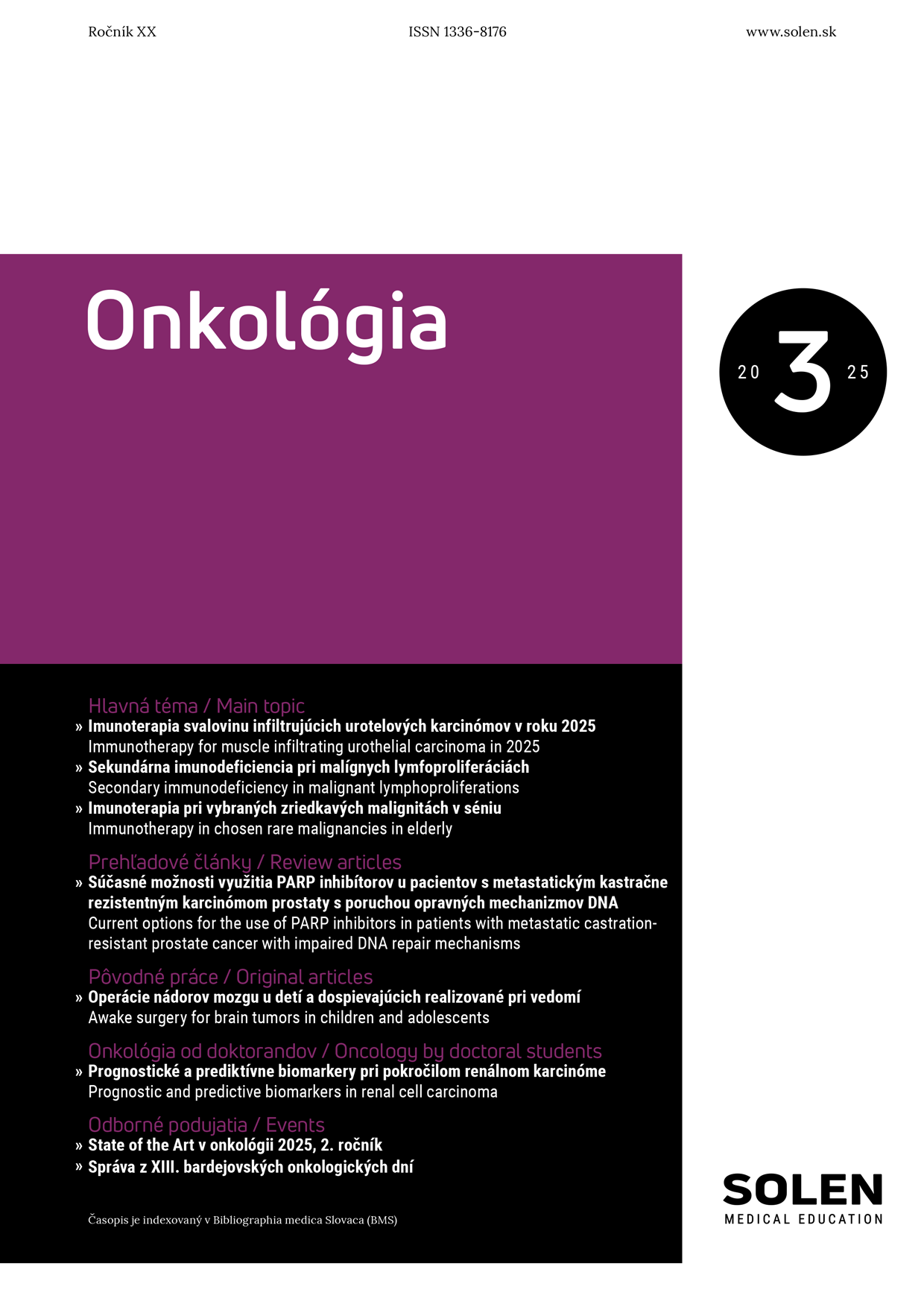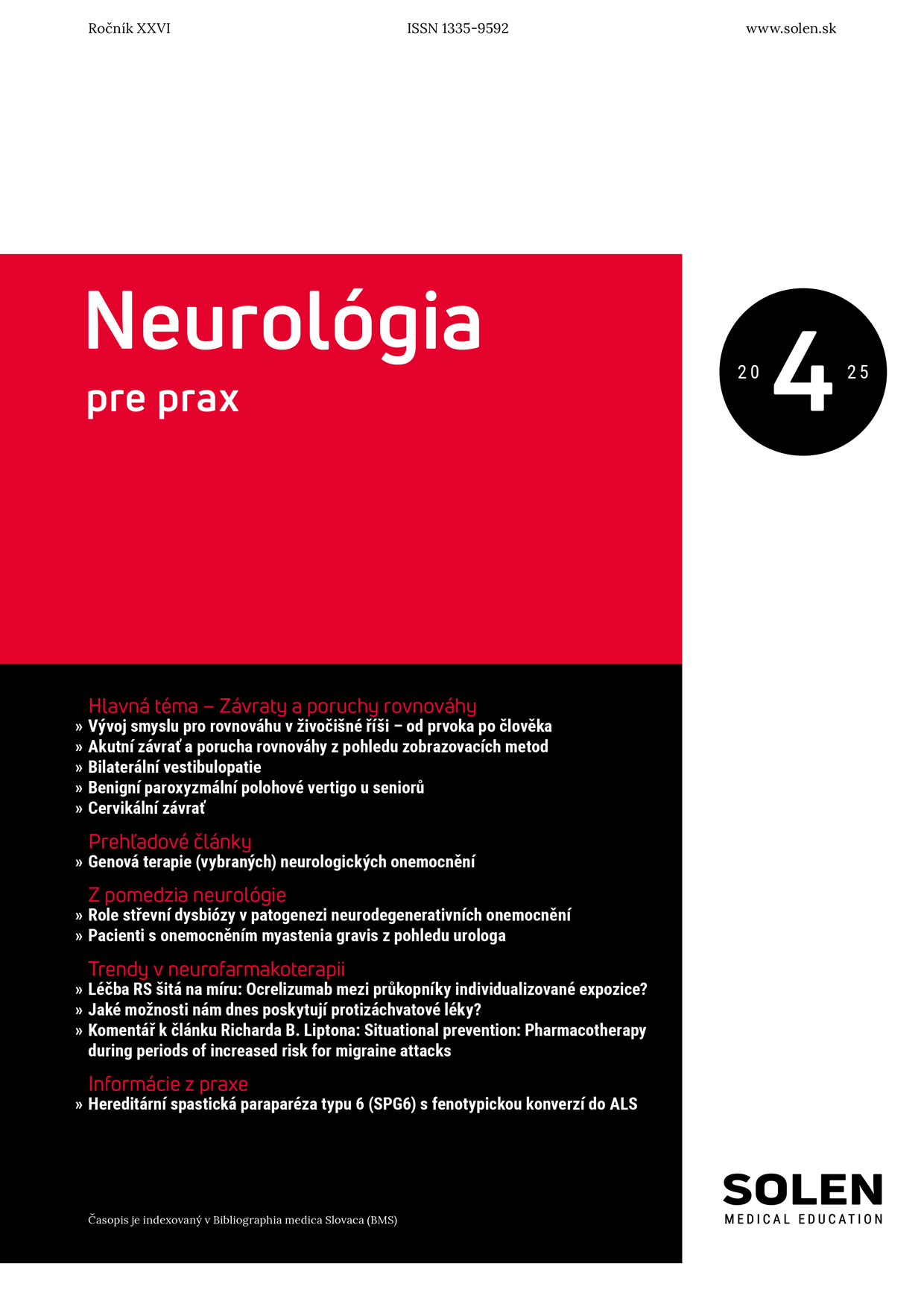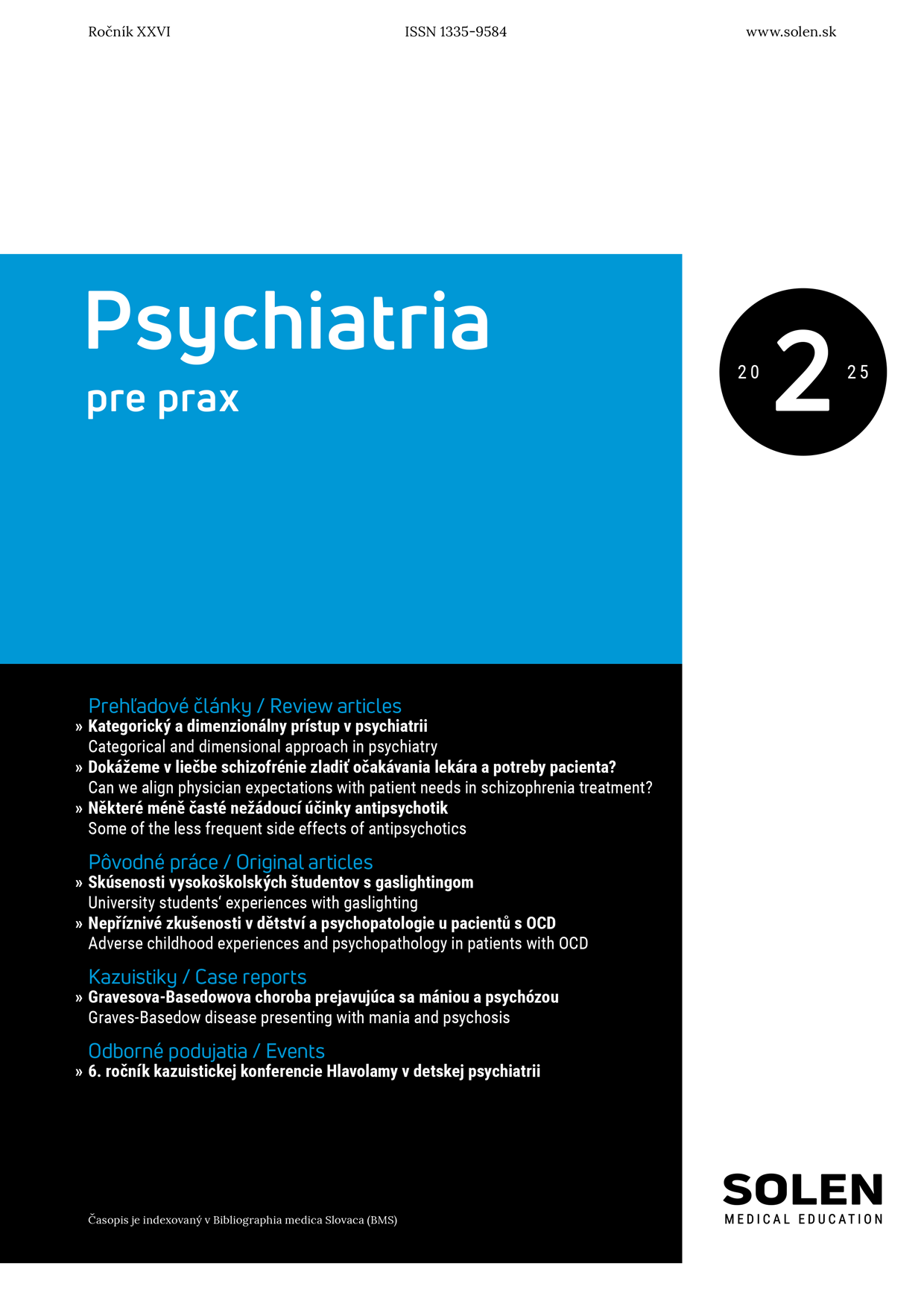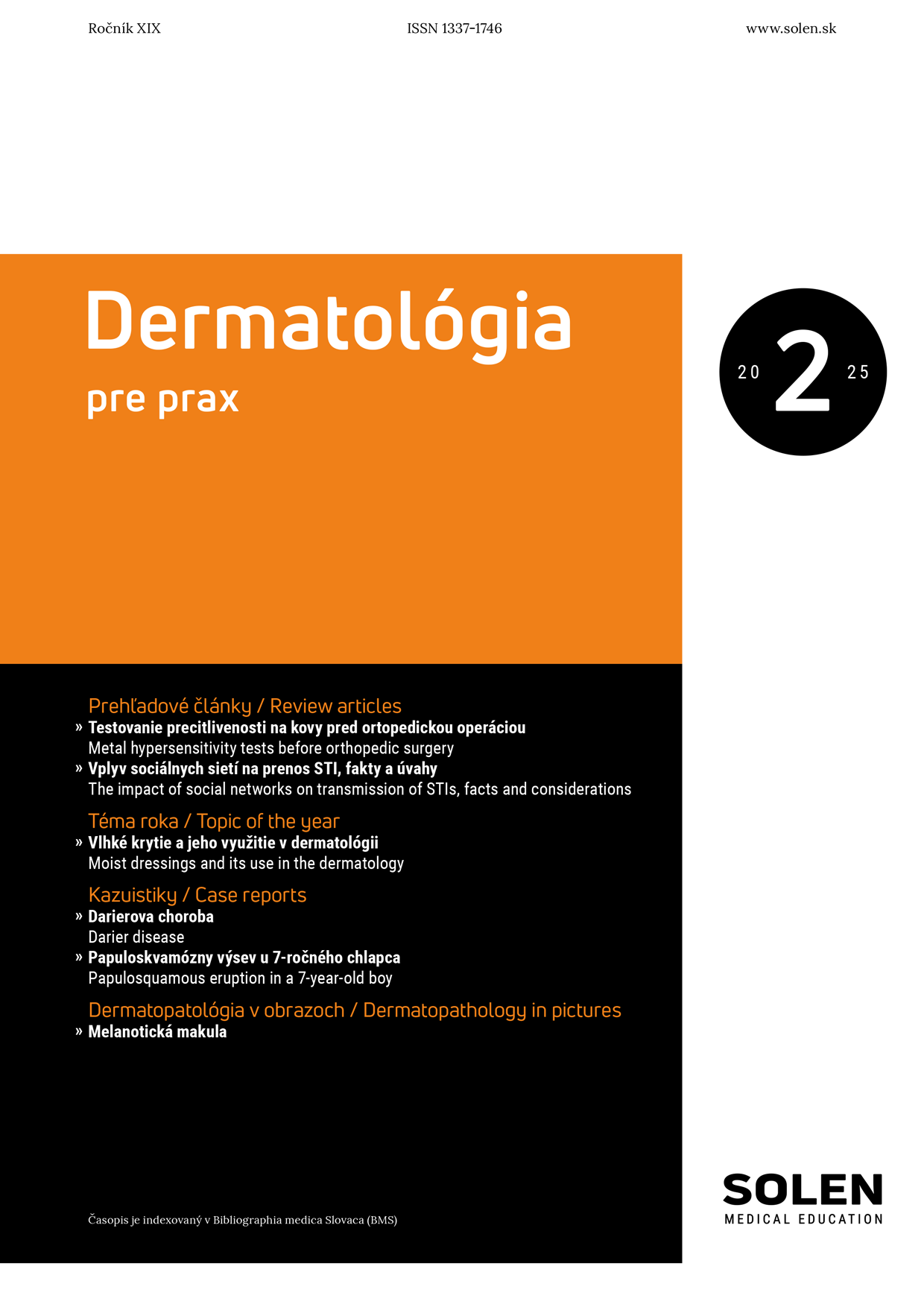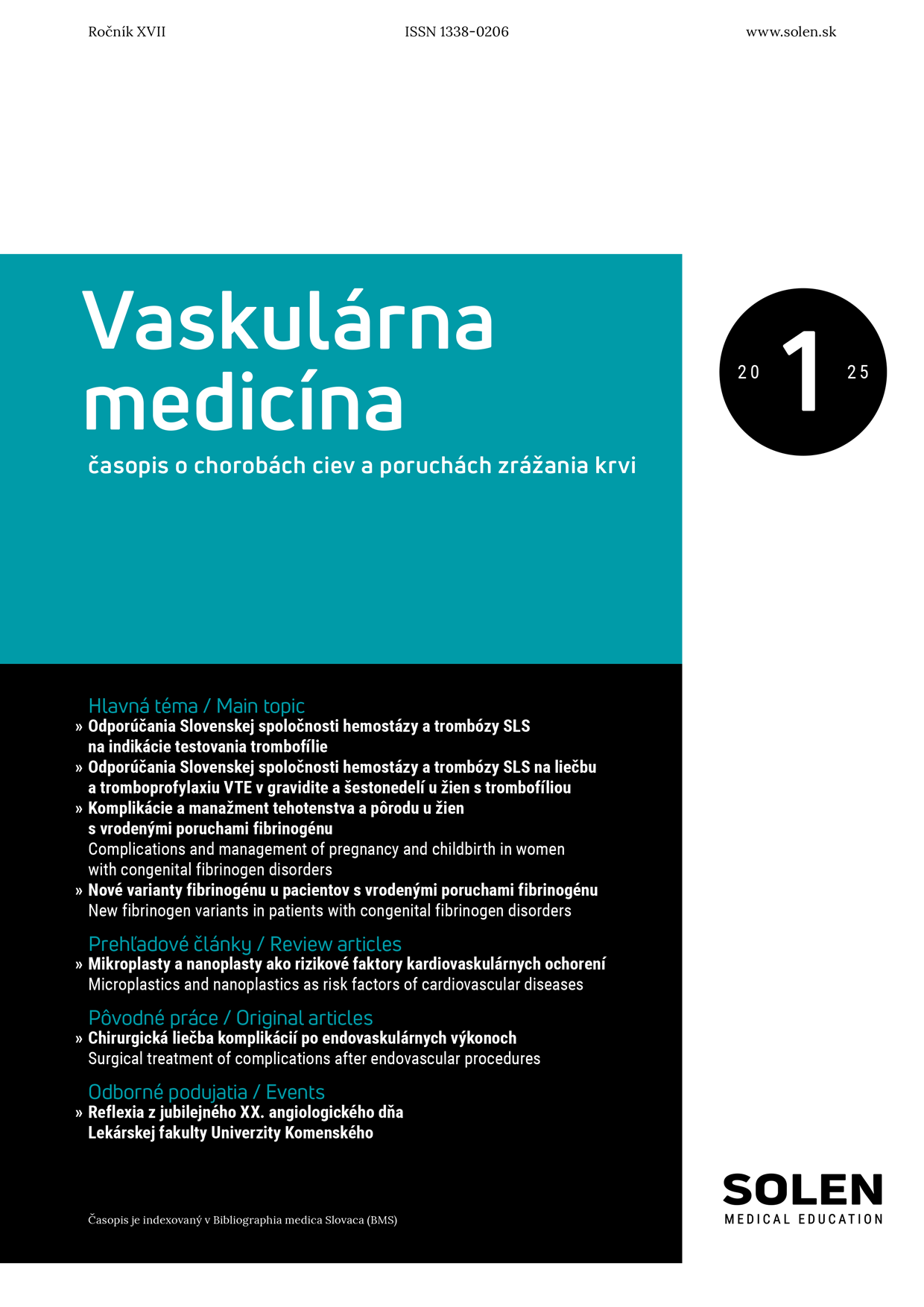Onkológia 5/2024
Hodgkin lymphoma in combination with myasthenia gravis – case report
Introduction: Hodgkin lymphoma is hematological malignant disease which belongs among lymphomas. There are 2 variants of Hodgkin lymphoma – classical Hodgkin lymphoma, which is characteristic by presence of Reed-Sternberg cells and nodular Hodgkin lymphoma with lyphocyte predominance. Hodgkin lymphoma is a disease with good prognosis. Myastenia gravis is autoimmune neurological disease caused by autoantibodies against receptor on neuromuscular junction. Worsening of clinical condition of the patient with myastenia gravis may appear in situations as stress, infection or may be induced by particular drugs. Pharmacological limitations of usage of medicine is a crucial problem for treatment of other diseases in patient with myastenia gravis. Case summary: The autors present the case of young woman with myastenia gravis who has been diagnosed with Hodgkin lymphoma. The Hodgkin lymphoma is a disease which requires aggresive oncohematological treatment with numerous possible complications of which the most dangerous is febrile neutropenia. The patient has been treated by escalated BEACOPP regimen. She suffered from febrile neutropenia repeatedly. The critical limitation in management of febrile neutropenia is the existence of contraindicated antimicrobial drugs in patients with myastenia gravis. Conclusion: Hodgkin lymphoma is considered a disease with favorable prognosis in present day. Howewer, the concomitant myastenia gravis is a problem in management of complications of treatment and requires effective mutidisciplinary cooperation between hematologist and neurologist. In this particular case, we have been successful and this patient is in complete remission of the disease.
Keywords: Hodgkin lymphoma, myastenia gravis, lymphadenopathy, febrile neutropenia, Deauville score


